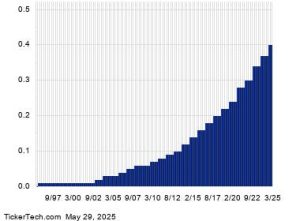The Affordable Care Act (ACA) marketplace open enrollment period, a critical timeframe for Americans to secure health insurance coverage for 2025, culminates on Wednesday, January 15th. This deadline holds significant implications for millions of individuals who rely on the ACA, often referred to as Obamacare, for their healthcare needs. Failing to enroll by Wednesday night will leave individuals without coverage, potentially exposing them to substantial financial risks associated with unexpected medical expenses. The ACA marketplace provides a platform for individuals to compare and select health plans that meet their requirements, ensuring access to essential medical services and protecting against the potentially devastating financial consequences of illness or injury.
The ACA has dramatically reshaped the healthcare landscape in the United States, providing coverage to roughly 45 million Americans as of 2024. A significant aspect of the ACA’s impact is its expansion of Medicaid, extending coverage to millions of low-income adults who previously lacked access to affordable healthcare. This expansion has been instrumental in reducing the number of uninsured Americans and ensuring access to essential medical services for a broader segment of the population. The ACA also guarantees coverage for individuals with pre-existing conditions, a provision that has been life-changing for many who were previously denied coverage or faced exorbitant premiums. The marketplace offers a variety of plans, all of which cover fundamental healthcare services such as doctor visits, hospital stays, prescription drugs, mental health treatment, and maternity care.
This year’s open enrollment period commenced on November 1st, 2024, providing a three-month window for individuals to explore their options and select a suitable health plan. The impending deadline underscores the importance of prompt action. While the ACA remains a viable and vital pathway to health insurance coverage, securing that coverage hinges on enrolling through the HealthCare.gov Marketplace before the deadline. The eligibility criteria for ACA coverage are relatively broad, encompassing most uninsured U.S. citizens and legal residents who are not incarcerated and not covered by Medicare. The Centers for Medicare and Medicaid Services report that nearly 24 million Americans have already enrolled through the marketplace, highlighting the continued significance of the ACA in providing access to healthcare.
Financial experts emphasize the critical nature of this deadline and the potential ramifications of inaction. Alex Beene, a financial literacy instructor, stresses the importance of meeting the January 15th deadline to avoid gaps in coverage and the associated financial repercussions. Unforeseen medical expenses can quickly accumulate, placing a significant strain on personal finances. Kevin Thompson, a finance expert, points out that while penalties for lacking coverage are no longer applicable in most states, the financial consequences of being uninsured can be severe, including high out-of-pocket expenses for medical emergencies and potential delays in receiving necessary care. These experts underscore the importance of proactive planning and securing appropriate health insurance coverage to mitigate financial risks.
Michael Ryan, another finance expert, emphasizes the far-reaching implications of missing the deadline. Without a qualifying life event, individuals will be unable to access comprehensive ACA coverage until the next open enrollment period. While short-term plans offer an alternative, they typically provide less comprehensive coverage, leaving individuals vulnerable to catastrophic medical expenses. Ryan highlights the devastating impact unexpected medical bills can have on financial stability, emphasizing the importance of health insurance as a cornerstone of sound financial planning. He stresses that the consequences of forgoing health insurance extend beyond immediate healthcare needs, potentially jeopardizing long-term financial goals such as retirement planning and emergency savings.
While missing the January 15th deadline can have significant repercussions, certain life-changing circumstances, such as job loss or changes in family status, may qualify individuals for a special enrollment period. However, experts advise against relying on these special enrollment periods and recommend securing coverage during the open enrollment period whenever possible. This proactive approach ensures continuous coverage and avoids the potential financial and health risks associated with being uninsured. The ACA marketplace provides a crucial safety net, protecting individuals from the financial burdens of unexpected medical expenses and ensuring access to the care they need to maintain their health and well-being. Meeting the deadline is essential for ensuring uninterrupted coverage and protecting oneself from the potential financial devastation of unexpected medical costs.










